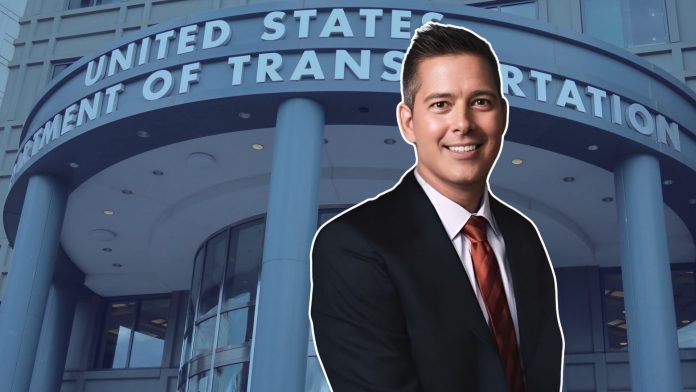Newly appointed U.S. Transportation Secretary Sean Duffy has moved swiftly to reverse key fuel economy policies set under the Biden administration. Within hours of being sworn in, Duffy issued a memorandum directing the National Highway Traffic Safety Administration (NHTSA) to reset Corporate Average Fuel Economy (CAFE) standards, rolling back regulations that aimed to reduce fuel consumption for cars and trucks. His immediate action signals a significant shift in federal policy under the Trump administration, favoring a more market-driven approach to vehicle efficiency.
The CAFE standards in question were finalized in June 2023, setting stricter fuel efficiency mandates for automakers. Under these regulations, light-duty vehicle efficiency was slated to increase from 39.1 miles per gallon (mpg) to 50.4 mpg by 2031. Additional rules extended to heavy-duty pickups and vans through 2035. While federal law requires NHTSA to establish fuel economy standards at the highest feasible level, the agency’s prior ruling placed increased pressure on automakers to phase out internal combustion engine (ICE) models in favor of electric and hybrid alternatives.
Duffy’s directive calls for reevaluating these mandates, citing concerns over rising vehicle costs and potential limitations on consumer choice. The decision aligns with broader efforts to slow the federal push toward electrification, reflecting the Trump administration’s stance on reducing regulatory burdens on the auto industry. In addition to the NHTSA’s review, the Environmental Protection Agency (EPA) is expected to reassess vehicle emissions regulations and revisit California’s authority to phase out gasoline-only vehicle sales by 2035.
The rollback of these regulations carries significant implications for automakers, consumers, and industry stakeholders. Previous CAFE requirements were projected to cut gasoline consumption by 64 billion gallons and reduce emissions by 659 million metric tons. While regulators estimated these changes would generate $35.2 billion in net benefits through fuel savings, higher fuel economy standards also contributed to increased vehicle production costs. By reconsidering these rules, the administration could extend the production cycle of ICE vehicles, easing regulatory pressure on manufacturers while potentially slowing the adoption of electric vehicles (EVs).



